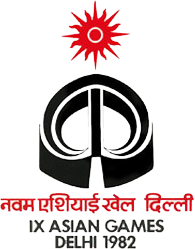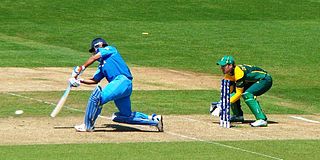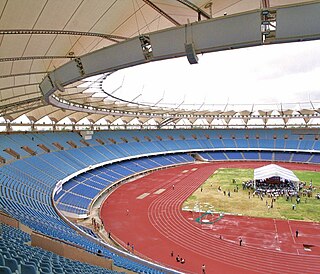
The 1954 Asian Games, officially known as the Second Asian Games – Manila 1954 was a multi-sport event held in Manila, Philippines, from May 1 to 9, 1954. A total of 970 athletes from 19 Asian National Olympic Committees (NOCs) competed in 76 events from eight sports. The number of participating NOCs and athletes were larger than the previous Asian Games held in New Delhi in 1951. This edition of the games has a different twist where it did not implement a medal tally system to determine the overall champion but a pointing system. The pointing system is a complex system where each athlete were given points according to their achievement like position in athletics or in swimming. In the end the pointing system showed to be worthless as it simply ranked the nations the same way in the medal tally system. The pointing system was not implemented in future games ever since. Jorge B. Vargas was the head of the Philippine Amateur Athletic Federation and the Manila Asian Games Organizing Committee. With the second-place finish of the Philippines, only around 9,000 spectators attended the closing ceremony at the Rizal Memorial Stadium. The events were broadcast on radio live at DZRH and DZAQ-TV ABS-3 on delayed telecast.

The 1951 Asian Games, officially known as the First Asian Games, was a multi-sport event celebrated in New Delhi, India from 4 to 11 March 1951. The Games received names like First Asiad, 1951 Asiad, and New Dehli 1951. A total of 489 athletes representing 11 Asian National Olympic Committees (NOCs) participated in 57 events from eight sports and discipline. The Games was the successor of the Far Eastern Games and the revival of the Western Asiatic Games. The 1951 Asiad were originally scheduled to be held in 1950, but postponed until 1951 due to delays in preparations. On 13 February 1949, the Asian Games Federation was formally established in Delhi, with Delhi unanimously announced as the first host city of the Asian Games.

The 9th Asian Games, also known as Delhi 1982, were held from 19 November to 4 December 1982, in Delhi, India. 74 Asian and Asian Games records were broken at the event. This was also the first Asiad to be held under the aegis of the Olympic Council of Asia. Delhi joined Bangkok as the cities to host multiple editions of the Asian Games up to this point. Later, Jakarta and Doha would enter this group.
The 1984 South Asian Games was the first edition of South Asian Games. It was held in Kathmandu, Nepal from 17 to 23 September 1984.

The Philippines participated in the first ever Asian Games held in New Delhi, India on 5 to 10 March 1951. With 5 golds, 6 silvers and 8 bronzes, this country was ranked 5th in the medal tally and 3rd place in the over-all medal count.

India has competed in all except four editions of the Commonwealth Games; starting at the second Games in 1934. India has also hosted the games once, in 2010. The most successful event for India in these games is shooting.

India first participated in the 1968 Summer Paralympics. The nation has appeared in every edition of the Summer Paralympics since 1984. The Paris 2024 Games marked India's 13th appearance at the Paralympics. The country has never participated in the Winter Paralympic Games.

India has a history of sports dating back to the Vedic period, with Western sports having been imported during British rule. Cricket is the most popular spectator sport; it generates the highest television viewership, with the Indian Premier League (IPL) being the most-followed league in the country. Football has also gained popularity, with the Indian Super League (ISL) being the highest level of domestic football, and the national team winning multiple gold medals at the Asian and South Asian Games. Additional football accomplishments include India having reached the Groupstage of the 1960 Olympics, qualified for the 1950 FIFA World Cup, and won the SAFF Championship. Other sports include kabaddi, badminton, tennis, and athletics, with kho-kho becoming the fourth-most viewed sport. India has also had success in field hockey, winning the World Cup and multiple medals in the Olympic Games. Sports such as golf, rugby, boxing, kickboxing, mixed martial arts, motorsport, wrestling, and basketball are featured throughout the country.
Football at the 1951 Asian Games was held in New Delhi, India from 5 to 11 March 1951. In this tournament, six teams played in the men's competition. The pitch dimensions were 110 by 65 yards slightly narrower than permitted by international regulations but FIFA had been notified this in advance and sanctioned the tournament.

The India men's national volleyball team represents India in international volleyball competitions. It is managed by the Volleyball Federation of India and is currently sponsored by Sahara India Pariwar and Asics.

Sport in Delhi has a long and distinguished history. Delhi is the capital territory of India; it has hosted many major international tournaments and has professional teams in different national leagues like Hockey India League, Indian Premier League and Indian Super League.
Diving was contested from March 10 to March 11 at the 1951 Asian Games in National Stadium Swimming Pool, New Delhi, India. Only two countries entered the competition. The host nation India won both gold medals, Iran finished second in medal table by winning one silver and one bronze.

The 1982 Asian Games [a] was a multi-sport event held in Delhi, India, from 12 November to 4 December 1982. A total of 3,411 athletes from 33 National Olympic Committees (NOCs) participated in these games, competing in 147 events in 21 sports and 22 disciplines. The number of participating countries was the greatest in Asian Games history. Sport events of handball, equestrian, rowing and golf were included for the first time; while fencing and bowling were excluded. This medal table ranks the participating NOCs by the number of gold medals won by their athletes.

India participated in the 1958 Asian Games held in Tokyo, Japan from 24 May to 1 June 1958. India was ranked seventh with 5 gold medals, 4 silver medals and 4 bronze medals, in the third edition of the Asian Games.

The West Bengal football team, also known as IFA Bengal football team or earlier the Bengal football team, is an Indian football team representing West Bengal in Indian state football competitions including the Santosh Trophy. They were the second Indian team to participate in the continental top tier tournament – Asian Champion Club Tournament, by playing in the 1970 edition following Mysore in 1969.
In India, the Athletics was introduced during the period of the British Raj. The sport is governed by the Athletics Federation of India, which was formed in 1946.

Subedar Major Neeraj Chopra is an Indian track and field athlete. Considered as the greatest Indian javelin thrower, he's a double medalist at the Olympics, World Championships, and the Asian Games. He has won the Diamond League once. Chopra won the gold medal at the 2020 Olympics, becoming the first Asian javelin throw athlete to do so. He became the first Asian to win a gold in javelin at the World Championships after his win in 2023. Chopra has won gold medals in every major tournament. He has a podium finish streak in 24 consecutive competitions, dating back to 2020. Since his performance at the 2016 World U20 Championship, he continues to hold the junior javelin throw world record.

Anshul Ketan Kothari is an Indian competitive swimmer who has represented India in Commonwealth Games and Asian Games.

India competed in the 2020 Summer Paralympics in Tokyo, Japan, from 24 August to 5 September 2021. India made its official debut at the 1968 Summer Paralympics and has appeared in every edition of the Summer Paralympics since 1984.











